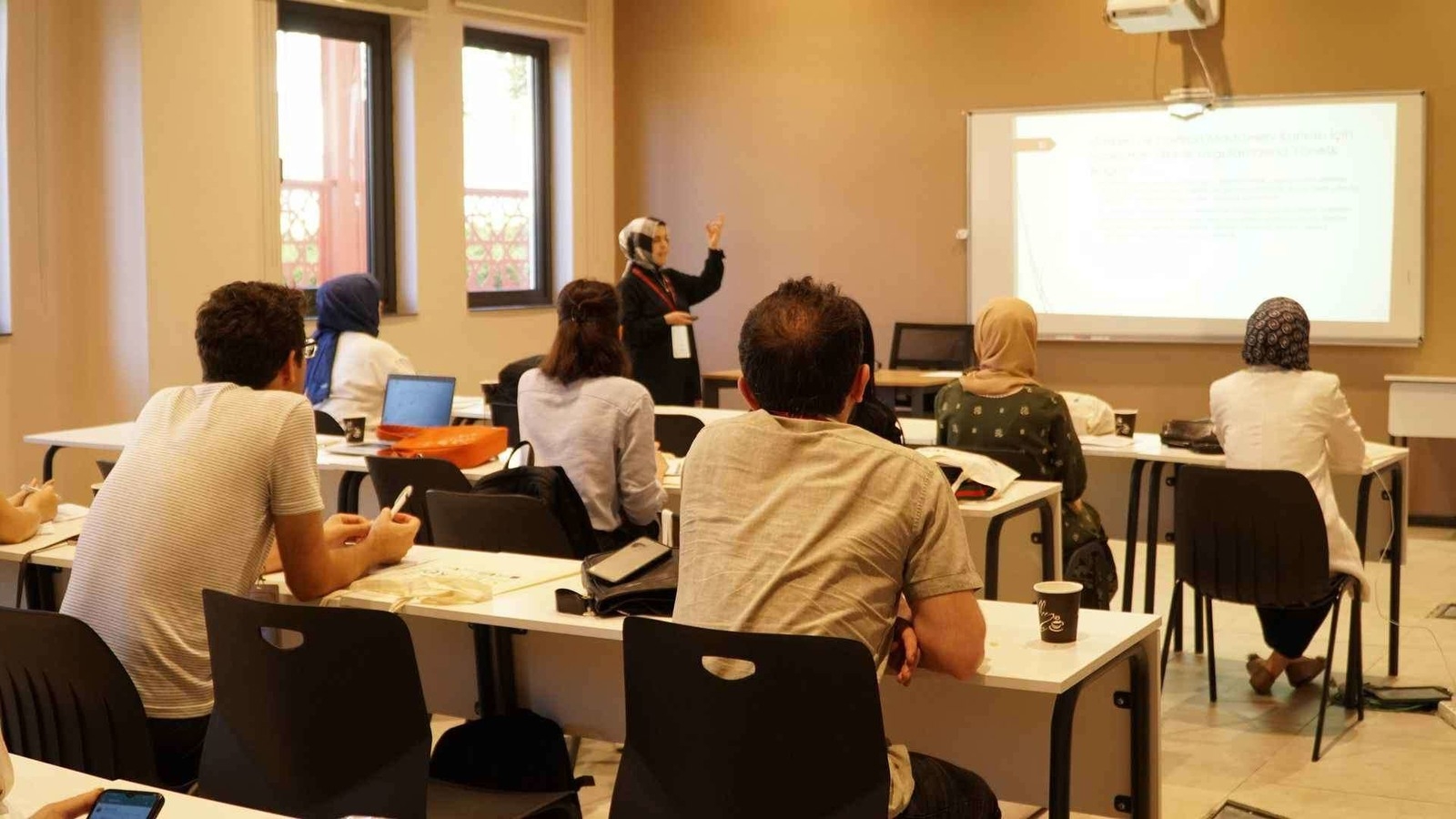


The Coordinatorship of Innovative Learning and Teaching-Artificial Intelligence can participate as an observer in the lectures upon the request of volunteer academicians.The process of instructional observations conducted by the Coordinatorship of Innovative Learning and Teaching-Artificial Intelligence typically includes the following steps:
1.Planning and Preparation: Before the instructional observation process begins, objectives are defined, and which classes or instructional activities will be observed are planned. At this stage, the roles and responsibilities of the observers and academicians are also clarified.
2.Preparation of Observation Tools: Tools such as forms, checklists, or assessment criteria necessary for the observers are prepared. These tools assist observers in systematically evaluating the class or instructional activity.
3.Conducting the Observation: The observation process takes place during the specified class or instructional activity. Observers carefully monitor student-academician interactions, teaching methods, materials, active learning techniques, and other critical factors. Notes are taken, and data is recorded during this time.
4.Data Analysis: Observation data is analyzed to assess teaching quality and determine the strengths and areas for improvement of the academician. It is important to maintain an objective and impartial approach during this stage.
5.Feedback and Evaluation: Observation results are shared with the academicians. In this feedback, the academician's effective practices are highlighted, while recommendations are provided for development. The conversation with the faculty member focuses on helping them understand and utilize the feedback for improvement.
6.Development Plan and Support: Based on observation results, academicians can create a development plan. This plan includes goals and action steps to support the professional development of the academician. Additional support is provided if necessary.
7.Monitoring and Evaluation: The progress of the goals set based on observation results is regularly monitored and evaluated. This is important for tracking the academician's progress and the impact of changes in teaching.
8.Sharing Best Practices: Observation results encourage the sharing of best practices in education. Other academicians and educators can use this information to enhance their own practices.
The instructional observation process conducted by the Coordinatorship of Innovative Learning and Teaching-Artificial Intelligence serves as an important tool for increasing student success and supporting the professional development of academics. Effective management of this process contributes to enhancing the quality of education.